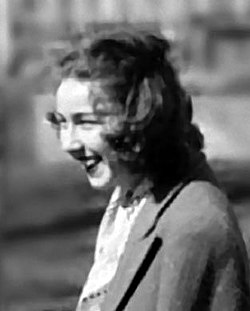Flannery O'Connor Quote
No, he said. Then he drew breath and said, You got a nice place here. It’s a nice part of the country. I’m sorry if I’ve give you a lot of trouble getting sick. It was my fault trying to be friendly with that nigger. And I’m a damned liar besides, he said to himself to kill the outrageous taste such a statement made in his mouth.
Flannery O'Connor
No, he said. Then he drew breath and said, You got a nice place here. It’s a nice part of the country. I’m sorry if I’ve give you a lot of trouble getting sick. It was my fault trying to be friendly with that nigger. And I’m a damned liar besides, he said to himself to kill the outrageous taste such a statement made in his mouth.
Related Quotes
About Flannery O'Connor
Mary Flannery O'Connor (March 25, 1925 – August 3, 1964) was an American novelist, short story writer, and essayist. She wrote two novels and 31 short stories, as well as a number of reviews and commentaries.
O'Connor was a Southern writer who often wrote in a sardonic Southern Gothic style. She relied heavily on regional settings and grotesque characters, often in violent situations. In her writing, an unsentimental acceptance or rejection of the limitations, imperfections or differences of these characters (whether attributed to disability, race, crime, religion or sanity) typically underpins the drama.
O'Connor's writing often reflects her Catholic faith, and frequently examines questions of morality and ethics. Her posthumously compiled Complete Stories won the 1972 U.S. National Book Award for Fiction and has been the subject of enduring praise.
O'Connor was a Southern writer who often wrote in a sardonic Southern Gothic style. She relied heavily on regional settings and grotesque characters, often in violent situations. In her writing, an unsentimental acceptance or rejection of the limitations, imperfections or differences of these characters (whether attributed to disability, race, crime, religion or sanity) typically underpins the drama.
O'Connor's writing often reflects her Catholic faith, and frequently examines questions of morality and ethics. Her posthumously compiled Complete Stories won the 1972 U.S. National Book Award for Fiction and has been the subject of enduring praise.
